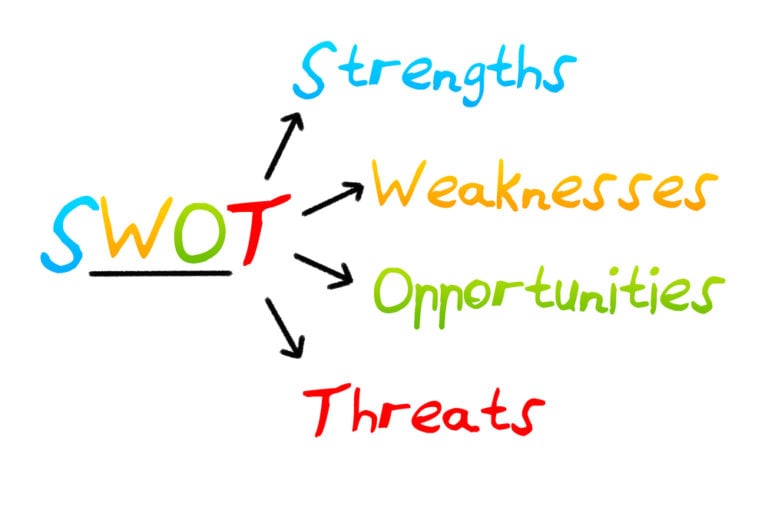In the context of the rapid development of society and the daily receipt of a large amount of information, a person needs more and more time to use the resources provided in full.
The acceleration of the pace of life leads to the fact that people must either sacrifice something for the benefit of the main goals, or build activities in the most rational and efficient way, reducing time costs.
Randomness in the construction of activities, disorder in the schedule of operations and the lack of a well-thought-out action plan lead to the fact that a person does not have time to do all the necessary things. As a result, there is tension, nervousness, a waste of time and energy, which negatively affects the results of people’s life.
Time management is aimed at streamlining your actions and operations, as well as building a schedule for their implementation in order to achieve your goals as fully as possible and with minimal time.
The history of time management
Even in ancient times, people tried to build their mode of activity in such a way as to take the necessary measures in a short time and at the same time achieve the maximum effect. However, time management was not given due attention, since there was no particular need for it.

With the development of scientific and technological progress and the acceleration of the pace of life in society, a new direction of thought appears – time management – as the science of time management. The formation of this concept dates back to the second half of the 20th century. (70-80 years), when both scientists of the world community and our compatriots began to seriously deal with this issue.
In the 21st century, the theory and practice of time management is widely used by different categories and groups of people. These include employees of enterprises, and freelancers, and housewives, and people engaged in free creativity, that is, almost every person should study in detail the rules and methods of time management to increase productivity at work and at home.
The purpose and objectives of time management
The main goal of time management, based on the essence of this concept, is to manage time and achieve the most positive result. In accordance with the goal, time management solves the following tasks:
- arrangement of operations and actions in order of priority for a person;
- ranking goals by importance;
- distribution of duties and responsibilities among members of a group or team;
- building a schedule for performing operations as the most efficient way to plan time;
- building the most rational model of behavior when using a temporary resource;
- increasing labor productivity, and, as a result, its efficiency and effectiveness;
- Search for hidden time reserves that can be used more efficiently.
The listed tasks are enlarged areas of activity, and therefore each block can be divided into many smaller subtasks. What exactly they will be – it is up to each person individually. The main thing is that they all must obey the main goal.
By solving these problems, each person can learn how to properly manage their time, using it as efficiently as possible. Such activities allow you to learn self-control and analysis, independent study of various methods and practices, organization of personal time for work and rest.
Principles of time management
Like any other field of knowledge, time management is based on certain principles developed by experts and taken as the basis for use. The following principles of time management should be highlighted:
Planning
Effective time management is possible only if it is clearly divided into certain periods for performing any actions. At the same time, for convenience, you can use various planning methods – write in a notebook or organizer, in special applications on your phone or computer. Visual planning allows you to give a visual assessment of the drawn up schedule, which helps to analyze it in more detail for effectiveness.

Determining the complexity of tasks
When drawing up a plan, it is necessary to focus on the fact that some tasks and operations are more complex, requiring maximum concentration or a large amount of time. It is they that should be performed first of all and preferably in the first half of the day, since during this period a person has more strength, he is concentrated and his performance is much higher.
After completing complex tasks, you can already engage in simpler operations that can be performed in a semi-automatic familiar mode. If you build a schedule in the opposite form, that is, first do easy things, and then difficult ones, then with a high degree of probability a person will not be able to do hard work, because he simply will not have the strength;
Splitting complex processes into simple ones
If during planning there are especially difficult points that require a large amount of resources, it is best to divide them into smaller ones. In this case, a seemingly unsolvable goal will be fulfilled when the execution of a set of simple subgoals is achieved;
Often people do not notice that some periods of time could be used more productively, and instead they spend them on useless things. The scourge of modern society is social networks and the Internet, in which there is so much information (useful and not very) that sometimes a person does not notice how he can spend several hours at a computer or phone in a row.
This time could well have been used more effectively. It is necessary to identify for yourself those operations that are ineffective and unnecessary, and begin to reduce the time spent on them. Instead, you can come up with activities for yourself that would really give some kind of positive result.
In addition, you can effectively combine two classes, if they do not interfere with each other. For example, if a person is waiting in line, he can simultaneously read an informative scientific article in his profession or start making a plan for the next day;
Motivation
A motivated person performs activities with much greater productivity. Intrinsic motivation is a kind of lever or catalyst, due to which a higher degree of perseverance, concentration of attention, and focus on obtaining the final result is manifested.

Motivation can be expressed in a specific form, and most often it is a financial result, that is, receiving money for the work done. To motivate yourself, you can think of what benefits the money will be spent on.
In addition, motivation can also be purely emotional, when a person receives psychological or physical satisfaction from the result of his activity.
Time management rules
Effective time management involves following certain rules of conduct, which are as follows:
- Use various tools and techniques to plan your time;
- keep your workspace clean so you don’t waste time looking for documents;
- do not study information that is not needed for a specific task;
- don’t waste time browsing social media uselessly;
- do not do several things at the same time, concentrate on one thing;
- learn to refuse people if they ask you to do work you don’t need;
- determine the periods in which you have the highest mental and physical activity – do difficult work at this time;
- Take time to relax and learn to relax completely, not in fits and starts.
Time management rules are aimed at defining in a general way the tactics of organizing the workflow. Their application is necessary in order to effectively increase the productivity of a person and formulate a line of his behavior in the implementation of the work process.
Time management techniques
Time management is a guide to action aimed at managing time, and it contains specific methods for carrying out this activity. Among them, the most commonly used methods are:
- Biorhythm-based work schedule creation method – “owl” or “lark”. He suggests that each person belongs to one of two types of biorhythms, the activity of which is manifested at different times of the day. It is necessary to form a work plan and schedule in such a way that the most complex and time-consuming tasks have to be completed during a period of increased activity of the body.

- The first step method is based on the fact that starting a difficult business is always difficult, but for this you just need to take the first step. Further progress will be easier, because it is always difficult for a person to start exactly. For the first step to be successful, you should create a specific template that can be used to perform similar operations;
- A constraint method to help make decisions when there is uncertainty. If a person does not know what decision to make in a particular situation, he sets himself a certain restriction – for example, to choose from two options in 10 minutes or if he does not decide to do this particular action;
- The method of writing in a complex form assumes that all entries must be made in one notebook or organizer, and not on many scattered pieces of paper. So it will always be easier to find the information you need, and it will never be lost, being fastened with all the necessary information;
- The graphical recording method suggests that sometimes it is easier and more convenient to display information using a diagram or graph. So it will be more understandable and easy to remember, and much less time will be spent on fixing.
Disadvantages of time management
Time management planning always gives tangible results, but at the same time it has a number of disadvantages. These should include things like:
- Emerging force majeure circumstances may disrupt the schedule. But, if the tasks are planned, they still need to be solved, and then a new search for free time begins. Violation of the drawn up schedule can lead to nervousness and irritability, and, as a result, a deterioration in a person’s well-being;
- The release of free time involves using it to perform new tasks, in connection with which a person deliberately overloads himself with work. In a situation of increasing volume of operations and increasing productivity, there may be an increase in fatigue that can become chronic;
- A clear schedule is good, but it can feel like it’s “Groundhog Day” every day. A person needs to do many different things every day, after which everything will start all over again.
TOP 5 books on time management
- Work less, do more – K. Gleason
- Extreme time management – N. Mrochkovsky, A. Tolkachev
- The art of being on time – A. Lacaine
- Time drive. How to manage to live and work – G. Arkhangelsky
- Tough time management. Take control of your life – Dan S. Kennedy














